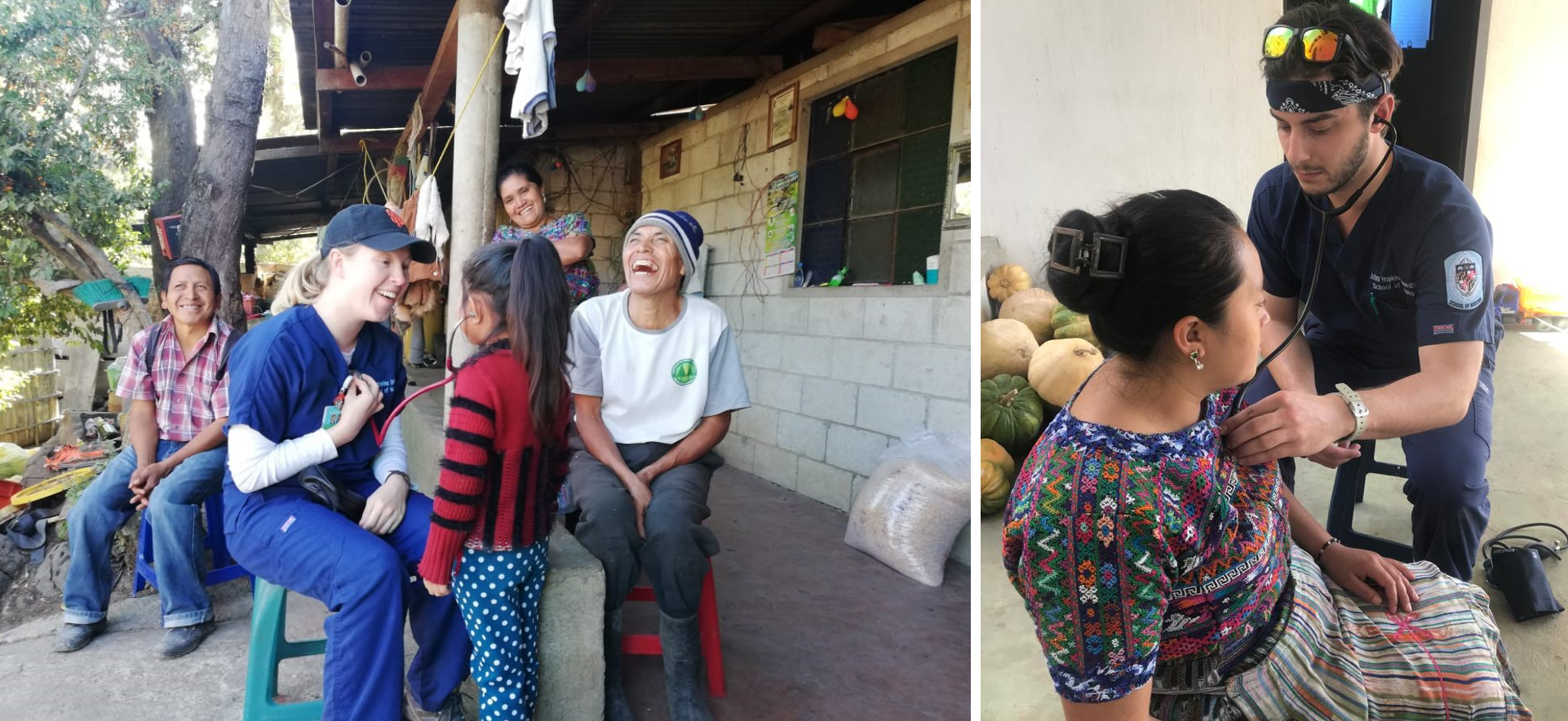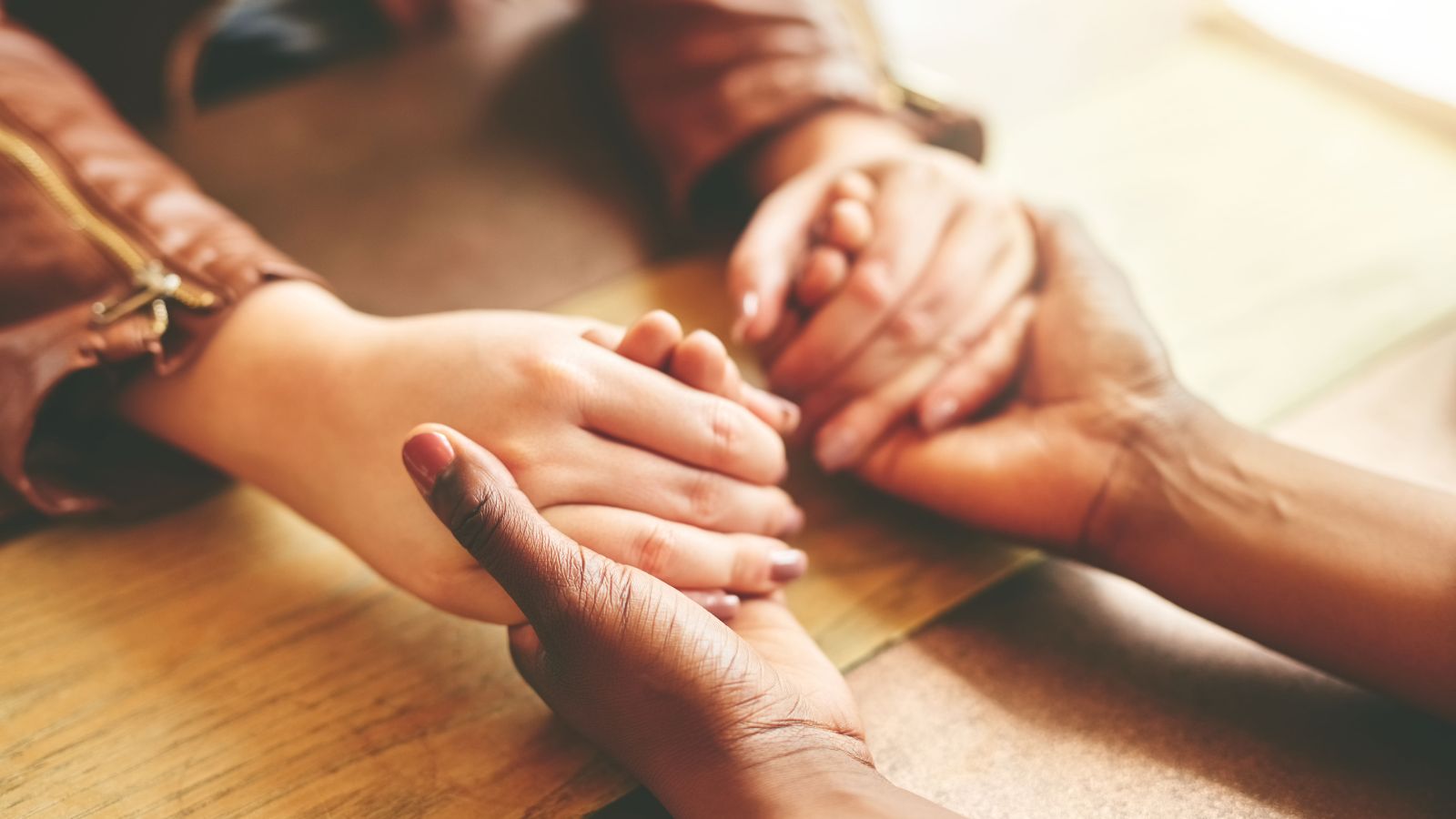“My head understands what happens here, but my heart doesn’t. And if there ever comes a day, that my head and my heart understand, I don’t want to do this anymore.”
We started off our Sunday like most Haitians – in church. We traveled downtown in all our fancy clothes (i.e. long skirts and maxi dresses we painstakingly hunted every department store for – Thanks, T.J Maxx and Wet Seal!) We could hear the songs and hymns from down the block and were welcomed with open arms and bright smiles. I am not sure what we were thinking when we tried to “sneak” into the back pews. When we thought we made it in unannounced, the Pastor spoke from the altar between two songs and motioned us to stand. As a formal introduction, the entire congregation whipped their heads around and acknowledged our presence. It was intimidating to stand in front of so many people who looked so much more beautiful than we did! Seriously, how do they look so good!? Not a drop of sweat!
Though it is hard to miss a flock of nine Blan women (and Kevin!) dressed in identical outfits even in downtown Baltimore, the feelings are even more heightened in “the end of the world.” Haitians refer to Jeremie as “the end of the world” because there is only one road that goes in and out of the city. As one of the farthest cities west on the southern peninsula, Jeremie is often the runt of the joke that if the bridge were taken in a storm it would be the farthest from civilization. It’s geographic location separated by the Grand’Anse River and mountain areas makes healthcare, especially for expectant mothers, impassible in certain months. Families are unable to seek care and, thus, put in yet another vulnerable state. One organization that has investigated this topic is the Haitian Health Foundation (HHF).
We had the fortunate chance to meet with Dr. Bette Gebrian, the Public Health Director for HHF. She is a perky, speed talking, enthusiastic women who has spent the last 26 years as an expat in Haiti. She is a medical anthropologist (GO HUSKIES!) by trade, but first and foremost a nurse. She is very proud of her nursing background and has used its model of management to inform successful public health interventions ranging from impacting incidence of bacterial pneumonia and reduction of maternal mortality in their catchment area. HHF has made drastic improvement in the health of mountain villages through implementing community agents to initiate behavior change in their own community. We were privy to much of their impressive data and information about the improvement of health indicators in an informal meeting at her home. We were beyond impressed and grateful for the wonderful afternoon. Thanks, Bette! For more information on the Haitian Health Foundation, check out http://www.haitianhealthfoundation.org/
Finally, as nursing students, we have spent countless hours in the hospital. We have been trained to manage cases medically, as nursing professionals, but largely with a whole lot of heart. We have seen sick patients from all over the world at Hopkins. Yet, coming to Haiti and seeing people at their hardest moment yet also negotiating lack of supplies, payment and corruption is hard to see. On an informal tour of the main government hospital in Jeremie by our own Dr. Wolf, every student was hit hard on every level. As professionals in training, we are eager to involve ourselves in every case and see all that we can. The situation drastically changes when your mind understands what you are seeing, but your heart just can’t. It was it eye opening to walk into the pediatric malnutrition ward and see babies who, with the resources we have as privileged citizens, may not be in such a dire state at Hopkins. It is hard to rationalize that we are only a 1.5-hour flight from Miami. We proceeded to meet a patient of the Gatineau Clinic who was thrilled to get her picture taken with Dr. Wolf. We peaked through a torn tarp window to many individuals packed into the makeshift cholera tents. In an amazing sense of timing and fate, a woman delivered her baby in the middle of the courtyard. The magic of a walk at 4cm!
Things in Haiti are rough. As the proactive and go-getter nursing students we are, our visit to the hospital focused on the emotional side of nursing. We know that these feelings that tear our hearts and get deep into our minds, are the true qualities and great strength of what it means to be a nurse.
 Global Service Learning: Guatemala
Global Service Learning: Guatemala Guatemala Re-visited: Rainwater Project Shows Value of Service-learning Trips
Guatemala Re-visited: Rainwater Project Shows Value of Service-learning Trips You’re Welcome
You’re Welcome My First Teachers in Nursing School Weren’t Nurses
My First Teachers in Nursing School Weren’t Nurses Awards for Diversity
Awards for Diversity






